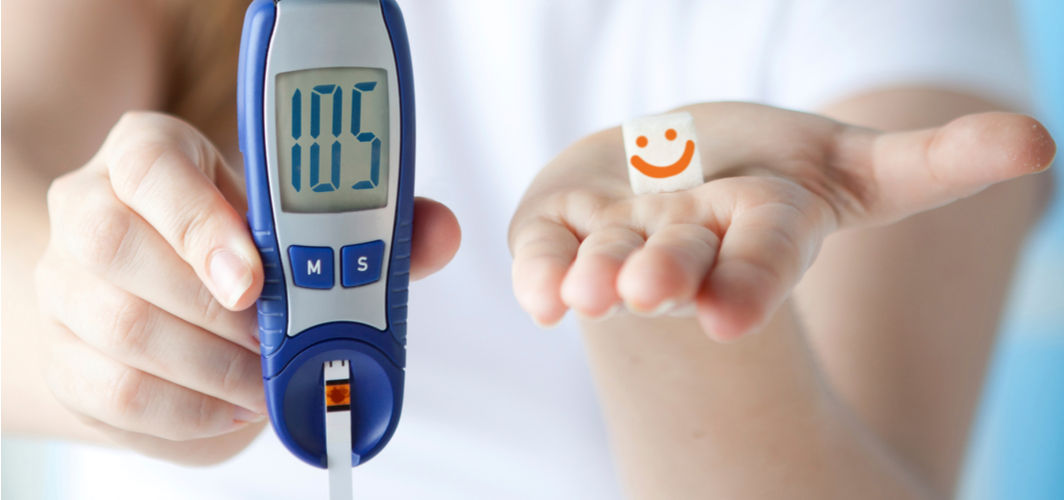Diabetes Management
Wearable Health Devices and their Advantages for Diabetics
2 min read
By Apollo 24|7, Published on - 05 September 2024
Share this article
0
0 like
Managing diabetes is a daily task. However, advancements in technology have made it easier for individuals to maintain their health and track their progress. Wearable health devices, specifically designed for diabetic individuals, now provide continuous glucose monitoring and integrated health management.
Understanding Wearable Health Devices for Diabetic Individuals
There are several types of wearable health devices available that focus primarily on continuous glucose monitoring and integrated health management. The different types include:
- Continuous Glucose Monitors (CGMs): These devices, while expensive, enable real-time tracking of glucose levels by using a small sensor under the skin. The user is alerted when glucose levels are high or low, allowing immediate action.
- Wearable Insulin Biosensors: These devices combine glucose monitoring with automated insulin delivery, providing real-time glucose tracking and automatically adjusting insulin delivery based on the individual's glucose levels.
- Smartwatches and Fitness Trackers: These devices offer features for tracking physical activity, heart rate, and sleep patterns. Some models can integrate with CGMs to visualise glucose data.
- Hybrid Devices: Some newer devices combine CGMs and insulin pumps functionality to allow seamless management of insulin delivery alongside continuous glucose monitoring.
- Wearable Sensors: Present in smart bands or other wearable technology, these sensors monitor physiological signs relevant to diabetes management.
How Diabetic Individuals Benefit from Wearable Health Devices
The primary benefits provided by these devices include:
- Real-Time Monitoring: Continuous monitoring helps individuals make informed decisions about their diet and insulin use, thus reducing the risk of complications.
- Data Integration: These devices can sync to mobile applications, enabling users to track their health metrics over time and share data with doctors for better management.
- Alerts and Notifications: Customisable alerts for glucose levels enable quick action when levels are outside the target range.
- Improved Quality of Life: The constant health insights from these devices reduce the need for frequent finger-prick tests and enhance overall life quality.
With the Apollo Super 6 programme, diabetic individuals can harness the full potential of wearable health devices. This programme, developed by Apollo doctors, helps manage type 2 diabetes through lifestyle changes and personalised support, including free access to diabetes management tools.
Diabetes Management
Consult Top Diabetologists
View AllLeave Comment
Recommended for you

Diabetes Management
Adding a Smile to Your Diabetes Management
Oral hygiene is crucial for diabetics. Diabetes increases the risk of gum diseases like tooth decay and cavities. Hence, regular brushing, flossing, and dental check-ups are essential for diabetics to maintain good oral health and support overall well-being.

Diabetes Management
7 Reasons Why Blood Sugar Logging is Important in Diabetes?
Blood sugar logging is crucial for effective diabetes management, providing insights into glycemic control, aiding treatment adjustments, and preventing hypo- and hyperglycemia. It guides lifestyle changes, prevents long-term complications, and enables personalized management, offering a sense of control and peace of mind. Active monitoring empowers individuals to make informed decisions, reduce risks, and lead healthier lives with diabetes.
.jpg?tr=q-80)
Diabetes Management
What Should Be The Ideal Daily Routine For A Diabetic Patient?
Effective diabetes management is a daily commitment. A well-planned daily routine can do wonders for controlling your blood sugar levels. From starting the day right with a healthy breakfast and engaging in a morning routine designed for diabetic patients to planning balanced midday meals and incorporating physical activities - each step counts. Learn everything about the ideal daily regimen for diabetics.
Subscribe
Sign up for our free Health Library Daily Newsletter
Get doctor-approved health tips, news, and more.
Visual Stories

8 Fruits That are Incredibly Healthy for Diabetes
Tap to continue exploring
Recommended for you

Diabetes Management
Adding a Smile to Your Diabetes Management
Oral hygiene is crucial for diabetics. Diabetes increases the risk of gum diseases like tooth decay and cavities. Hence, regular brushing, flossing, and dental check-ups are essential for diabetics to maintain good oral health and support overall well-being.

Diabetes Management
7 Reasons Why Blood Sugar Logging is Important in Diabetes?
Blood sugar logging is crucial for effective diabetes management, providing insights into glycemic control, aiding treatment adjustments, and preventing hypo- and hyperglycemia. It guides lifestyle changes, prevents long-term complications, and enables personalized management, offering a sense of control and peace of mind. Active monitoring empowers individuals to make informed decisions, reduce risks, and lead healthier lives with diabetes.
.jpg?tr=q-80)
Diabetes Management
What Should Be The Ideal Daily Routine For A Diabetic Patient?
Effective diabetes management is a daily commitment. A well-planned daily routine can do wonders for controlling your blood sugar levels. From starting the day right with a healthy breakfast and engaging in a morning routine designed for diabetic patients to planning balanced midday meals and incorporating physical activities - each step counts. Learn everything about the ideal daily regimen for diabetics.


